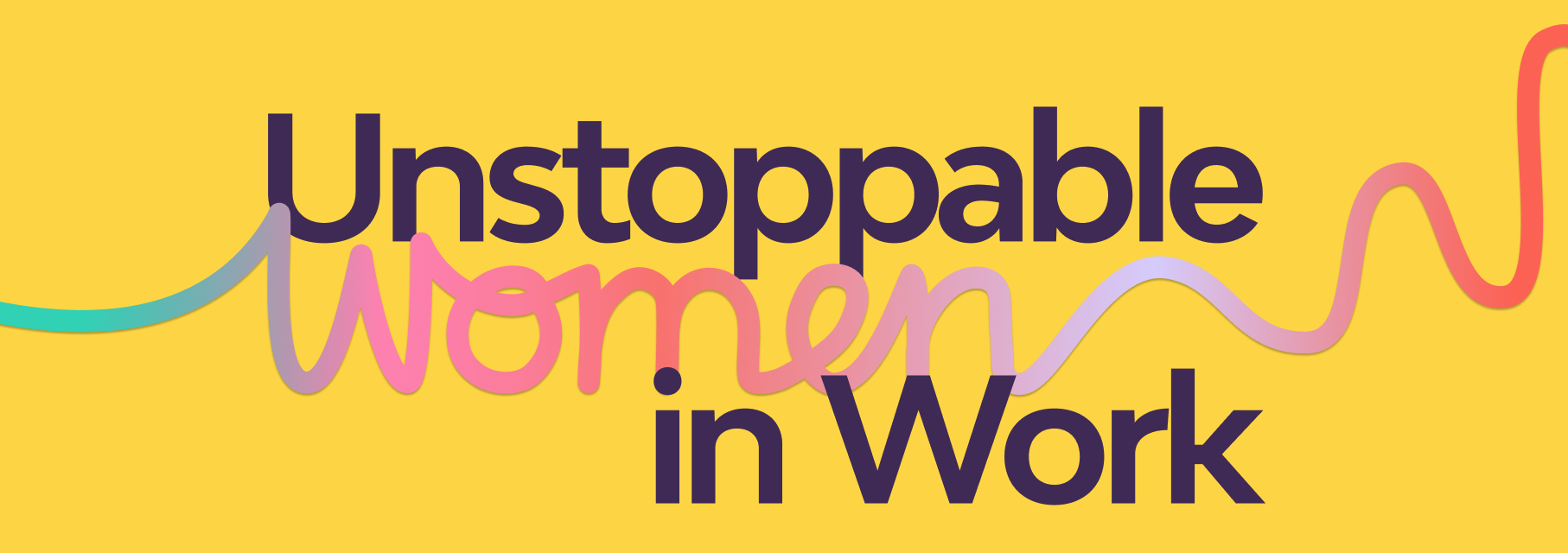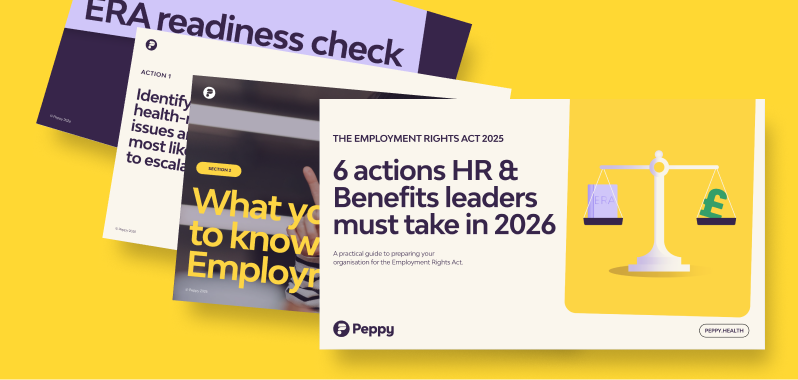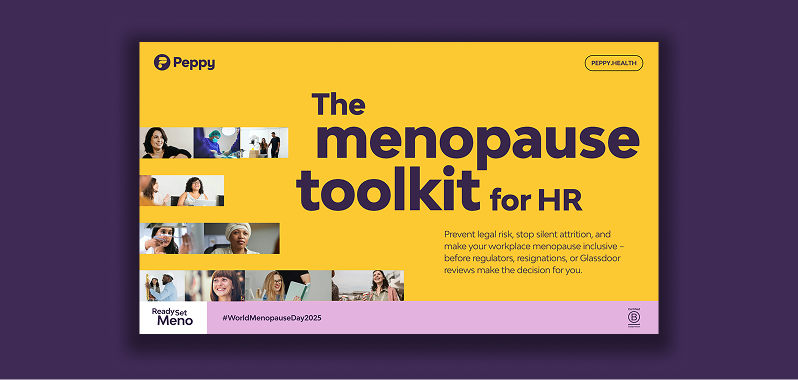Over 1 million people in the UK are living with undiagnosed polycystic ovary syndrome (PCOS). But is this just another period problem for women to learn to live with, or is the long and complex road to diagnosis something employers should be doing something about?
I'll never forget the day I got my first period. I was ten days into starting a new school in a new town, on a school trip to the theatre. Bad timing, to say the least. It marked a whole new chapter of my life. Becoming a woman, sure, but also the chapter where I was reminded – constantly – of how not to have kids. I felt so in control of my body and my choices when, age 15, I picked up a six-month supply of Microgynon. The first of many to come. But even though I knew how to put an air-bubble-less condom onto a banana, I had no idea how my mood and energy levels peaked and troughed every month as my hormones changed. And as grown up as I felt, whipping out my pill packet at morning break and silencing my daily reminder, if you’d asked me how regular my periods were, I wouldn’t have known the answer. Because whilst everyone was worried about me not getting pregnant, no one ever spoke about what would happen if I couldn't. A condition like PCOS was a line in a biology textbook – it wasn’t something that would affect me… was it? I couldn't have predicted the confusion, frustration and dejection I'd feel, ten years on and off all contraception, not understanding why my period was taking so long to come back. Because, unknown to me at age 15 (and in fact, right up until age 27), I am one of the 10% of women in the UK who has PCOS. PCOS is one of the most common hormonal conditions impacting women of reproductive age. It creates tiny sacs filled with fluid on the ovaries, causing hormone imbalances. The list of symptoms is long, confusing and varies from person to person. The condition can make a person’s periods heavier or lighter than usual, longer, unpredictable or altogether absent – and without a period, getting pregnant naturally isn’t an option. It can cause weight gain, acne or oily skin, excessive hair growth, hair thinning… the list goes on.
Staggeringly, worldwide, the WHO estimates that 70% of PCOS cases are undiagnosed. For me, getting a PCOS diagnosis was a two-year, all-consuming journey.
Six months after coming off the pill, with no sign of a period, I spoke to my GP. They reassured me that this wait was normal. More months passed, and still no period. My GP suggested I might be over-exercising, or under-eating, or perhaps eating too much. I felt more and more confused. I also felt stressed. In my late twenties, friends and family around me were settling down, having babies or struggling through rounds of IVF when things weren’t so straightforward. For the first time in my life, I had very real concerns about whether, further down the line, my partner and I would even have the option of starting a family of our own.My self-confidence was at an all time low. My relationships and the energy I could bring to work were suffering as a result. We’ve all been there – when something big is on your mind, it’s literally impossible to be at the top of your game in every other aspect of your life.
Those Friday night, three-glasses-of-wine-down chats with girlfriends about our sexlives and future plans – conversations I’d loved so much that they’d led me to start a career in femtech – weren’t the same. If people asked me whether I wanted kids, I'd respond quickly (and honestly!), "Not yet!", but when close friends announced their pregnancy, I sat on my bed and cried. It had now been over a year since coming off the pill. Blood tests from the GP showed nothing. I was prescribed Clomid, an ovarian stimulant, which led to a short-lived hour of bleeding that left me disappointed.I felt isolated, consumed by annoyance in myself and a lack of appreciation for my body. I desperately wanted answers; I didn’t care what they were.
And this was when I turned to Peppy – the healthcare support app I'm lucky to get through work (because I work for them!). I let everything out, chatting to a women's health specialist who really seemed to understand how I was feeling. She recognised some of the signs and recommended an AMH (anti-mullerian hormone) blood test, which I did at home and sent off. Just doing something proactive felt like a step in the right direction. A week or so later, I was on a call with a Peppy practitioner talking through my results. My AMH levels were high, which is an indication of PCOS (high AMH levels suggest a higher-than-usual number of ovarian follicles, suggesting these haven’t fully developed). Finally, things started moving. With newfound confidence, I asked for a scan from my GP, which confirmed Peppy’s suspicions: I did have polycystic ovaries. Peppy suggested I ask my GP to be prescribed metformin (a medication known to regulate insulin levels), which I duly did. Two months later, I finally had a period – the first in over three years. Fast-forward to today: I’ve stopped taking any medication and I’ve embraced a life off hormonal contraception. I’m the proud tracker of a somewhat irregular but definitely present monthly menstrual cycle, and it feels great. Perhaps it’s a reflection of my vanity or the pitfalls of modern-day society, but despite the stress I think of myself as one of the lucky ones. I haven’t found myself putting on weight easily, I don’t battle with unwanted facial hair or acne. According to doctors, I don’t look like someone with PCOS – but the impact on how I felt has run more than skin-deep. I can only imagine how much worse it could be if, on top of the self-doubt and sleepless nights, my physical appearance was also being affected. There’s nothing worse than feeling out of control, or as if your body isn’t working as it should do. No, PCOS isn’t terminal, it doesn’t mean “infertile” and, with the right support, it can be managed – but PCOS isn’t something that should be suffered in silence. There are an estimated 15.66 million women aged 16 and over working in the UK. By my maths, that’s over 1.5 million people living with PCOS, of which well over 1 million may well be experiencing the emotionally draining, time-consuming, convoluted and complex journey of figuring out what the hell is wrong with their periods.
We can’t yet put a price on what PCOS is costing employers in terms of time off for appointments or low productivity, but that doesn’t mean there isn’t one.
Giving employees access to diagnostic pathways and empathetic, specialised support means employers can help the women in their organisation understand their bodies, take control of their symptoms and – ultimately – regain their confidence. And to me, that’s priceless.
By Issy Croneen, Peppy user
-1.png?width=600&height=450&name=Untitled%20design%20(8)-1.png)




